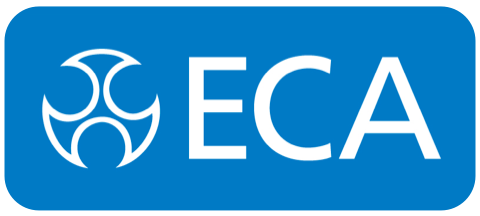
Temporary working is an unavoidable feature of a project-based sector such as construction.
In the UK, this understandable phenomenon is supercharged, however, by tax, social security and employment laws which, intentionally or otherwise, incentivise businesses and individuals to avoid the responsibilities and costs of the reciprocal, open-ended employment relationship wherever they can.
As a result, levels of construction self-employment in the UK far outstrip those found elsewhere: up to six times higher than in Germany, for example.
I have sought elsewhere to highlight the negative effects of this system of ‘flexibility on the cheap’ on, among other things, training, safety, productivity and innovation.
A recent news story, however, has caused me to reflect more specifically on the dehumanising effects of excessive casualisation, both for agency workers themselves and for those who engage them.
The story which caught my eye was headlined: ‘Contractors to rate site workers with new app’. It went on the describe how the Asbestos Removal Contractors Association (ARCA) has chosen to develop an Asbestos Labour Feedback App (ALFA) because, according to its Chairman, member firms have identified the quality of short-term agency labour as the ‘biggest issue’ they face.
ALFA, it is said, will allow site supervisors to rate agency operatives across nine ‘performance categories’, although the public statements I have seen fail to explain what all these categories are. Different supervisors’ feedback is then collated via the app, so that each operative receives an overall ‘star rating’, available for other ARCA members to view.
Reading this story for the first time, I couldn’t help feeling a little queasy. I then quickly jotted down the following questions:
- Does the agency worker have visibility of their ratings and a chance to challenge or overturn them? Can they opt out of the system?
- What other protections are there against inaccurate, unfair, arbitrary or malicious scoring?
- What further safeguards are in place to ensure legal compliance such as GDPR, unlawful discrimination, blacklisting, etc.?
- Is there any reciprocal process for the agency worker to rate the agency and the contractor?
- Are there robust whistleblowing procedures for agency workers in place, and do agency workers understand and have confidence in these?
- What resources are in place to support agency workers to address any reported shortfall in knowledge, skills, behaviours, etc.?
Now it could be, of course, that ARCA has respectable, credible answers to all these questions. However, the fact that it does not appear to have occurred to anyone concerned with marketing the ALFA app that such answers might be necessary, hints at a conceptualisation of agency operatives as dehumanized commodities which I suspect will be of concern to many people, and not just me.
I am not claiming, of course, that poor performance by agency workers isn’t a problem. In our own engineering services industry, for instance, it is a common refrain that too often agency workers lack the competences that a contractor has asked for, produce poor quality work, can prove less careful about their own and others’ safety, and tend to bolt as soon as another, better-paying job comes along.
My disagreement is with the idea that these failings are simply down to the agency workers themselves, and, by extension, can somehow be ‘cured’ by means of a one-sided, and potentially secretive, performance review mechanism, such as the ALFA app.
In employment relations, it is a truism that businesses tend to get the workforces they deserve. For example, supervisors with a ‘Theory X’ management style – based on assumptions that individuals are typically irresponsible, lazy and motivated by money – tend to perpetuate the very attitudes and behaviours which they believe themselves to be fighting against.
Likewise, any business model that relies for its viability on the existence of a fully flexible, fully committed – and yet, somehow, fully disposable – workforce is obviously riding for a fall.
Earwig is another app currently in development which has been designed from a very different perspective – namely that of agency workers themselves. Earwig’s founder, Harrison Moore, a former agency electrician himself, outlines some of the problems he and his peers can face:
‘Poor information from recruiters. Fibs about rates. Wages chased in vain. Tools lugged to-and-from site when cardies won’t let us share the lockups. Disinterested, disrespectful, abusive supervisors. Ever-higher (and sometimes unscrupulous) fees charged by umbrella companies. An endless vortex of uncertainty.’
Earwig invites agency workers to rate the agencies and contractors they work for and the conditions they experience on site. According to Harrison Moore:
‘Transparency’s key. This feedback engine—rewarding the good, incentivising the bad and exposing the ugly—will not only help workers make better choices and feel more secure but it will also help raise standards throughout the industry.’
Ultimately, no app will ever provide a real substitute for good employment practices, proper training and effective management. In my own view, the performance and ‘image’ problems within UK construction, can only start to be addressed once the sector makes a decisive move away from its current over-reliance on casualised, commodified labour.
Nevertheless, given where we are today, if you want to use an app, please make sure it is the right one.
